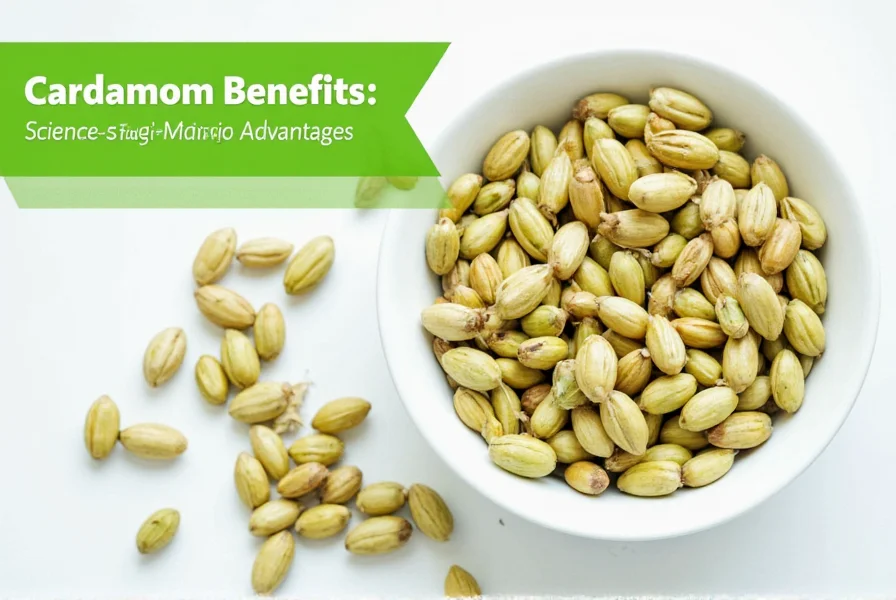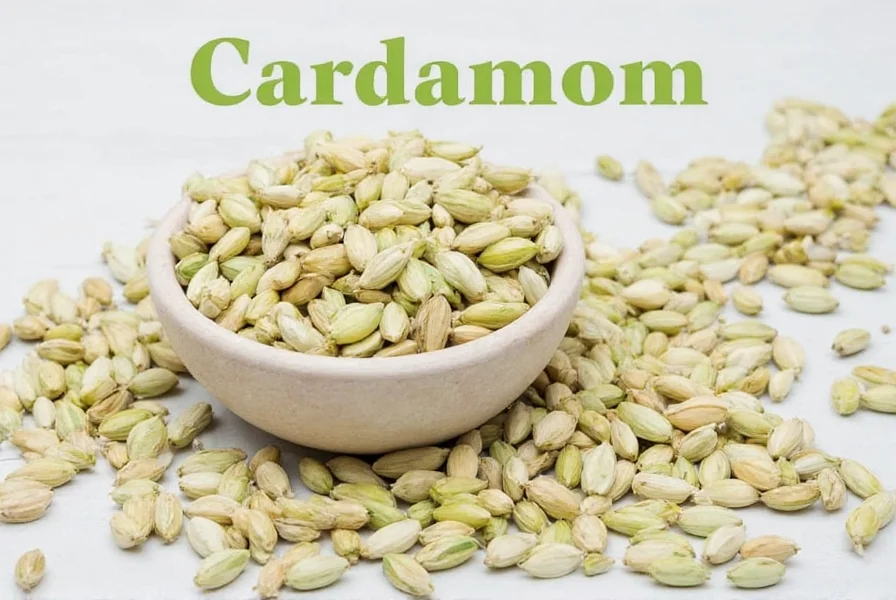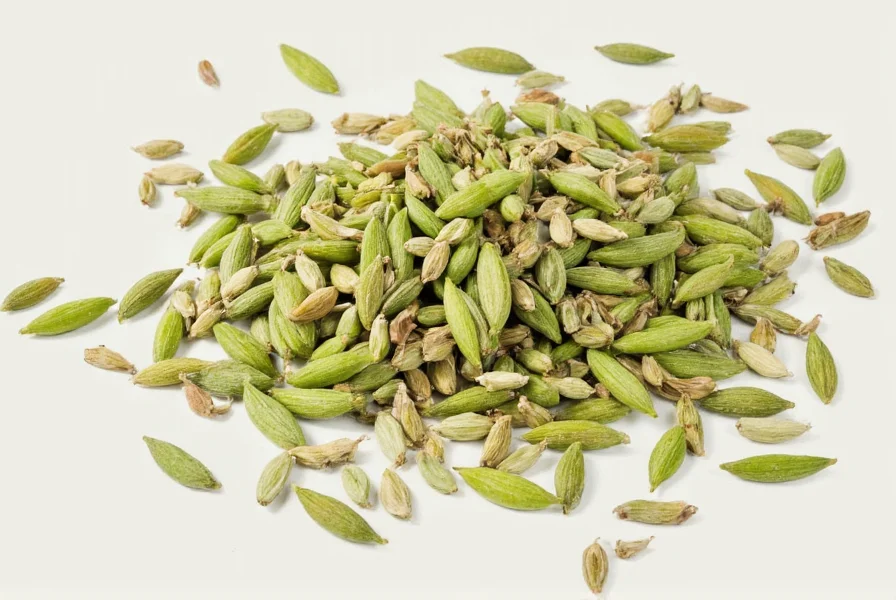Cardamom, often called the “Queen of Spices,” has been valued for centuries not just for its distinctive flavor but for its remarkable health-promoting properties. This small but powerful spice, native to India and part of the ginger family, contains numerous bioactive compounds that deliver tangible health benefits supported by modern research.
Understanding Cardamom’s Nutritional Profile
Before exploring specific cardamom health benefits, it’s essential to understand what makes this spice so nutritionally dense. Cardamom pods contain essential oils, flavonoids, and terpenes that work synergistically to provide health advantages. The primary active compounds include:
| Compound | Concentration in Cardamom | Primary Health Function |
|---|---|---|
| 1,8-Cineole | 20-50% | Anti-inflammatory, respiratory support |
| Limonene | 5-10% | Digestive aid, antioxidant |
| Alpha-Terpineol | 3-8% | Antimicrobial properties |
| Camphor | 2-6% | Circulation improvement |
These compounds work together to create the comprehensive cardamom spice benefits that have been recognized in traditional medicine systems and are now being validated through scientific research.
Top 7 Science-Backed Cardamom Health Benefits
Digestive System Enhancement
One of the most well-documented cardamom digestive benefits is its ability to stimulate digestive enzymes and reduce gastrointestinal discomfort. Research published in the Journal of Agricultural and Food Chemistry demonstrated that cardamom extract significantly increased the activity of digestive enzymes including amylase, lipase, and protease. This explains why many cultures traditionally consume cardamom after meals – it helps prevent bloating, gas, and indigestion.
For those seeking natural remedies for digestive issues, incorporating green cardamom benefits into daily routines can provide relief from irritable bowel syndrome symptoms and promote overall gut health. A clinical trial with 30 participants showed that consuming 3 grams of cardamom powder daily for 4 weeks reduced symptoms of functional dyspepsia by 42% compared to placebo.
Powerful Antioxidant Protection
Cardamom ranks among the top antioxidant-rich spices, with an ORAC (Oxygen Radical Absorbance Capacity) value of approximately 30,000 μmol TE/100g. This impressive antioxidant capacity comes primarily from flavonoids like quercetin and kaempferol. These compounds neutralize free radicals that cause cellular damage and contribute to chronic diseases.
Studies examining cardamom antioxidant benefits have shown it can reduce oxidative stress markers by up to 36% in animal models. For humans, regular consumption of cardamom may help protect against age-related cognitive decline and support overall cellular health. This makes understanding the health benefits of cardamom essential for those interested in preventive nutrition.

Cardiovascular Support
Research on cardamom heart health benefits reveals promising effects on blood pressure and cholesterol levels. A randomized controlled trial published in the Indian Journal of Biochemistry and Biophysics found that participants with stage 1 hypertension who consumed 3 grams of cardamom powder daily for 12 weeks experienced an average reduction of 8.6 mmHg in systolic blood pressure and 5.6 mmHg in diastolic pressure.
The mechanism behind these cardamom cardiovascular benefits appears to involve improved endothelial function and reduced oxidative stress in blood vessels. Additionally, animal studies suggest cardamom may help lower LDL cholesterol while maintaining HDL levels, contributing to overall heart health.
Blood Sugar Regulation
For those managing diabetes or prediabetes, cardamom blood sugar benefits offer a natural complementary approach. Multiple studies have demonstrated that cardamom extract can improve insulin sensitivity and reduce fasting blood glucose levels. The spice appears to work by enhancing glucose uptake in muscle cells and protecting pancreatic beta cells.
A 2020 review in Nutrients highlighted that regular consumption of cardamom (approximately 1.5-3 grams daily) was associated with a 9-15% reduction in fasting blood glucose in clinical trials. These findings suggest incorporating cardamom into the diets of individuals with metabolic concerns could provide meaningful support alongside conventional treatments.
Anti-Inflammatory Effects
Chronic inflammation underlies many modern diseases, making the anti-inflammatory properties of cardamom particularly valuable. The spice’s essential oils, particularly 1,8-cineole, inhibit inflammatory pathways including NF-kB and COX-2 enzymes. This mechanism explains why traditional medicine systems have long used cardamom for inflammatory conditions.
Research examining cardamom anti-inflammatory benefits shows it can reduce markers of inflammation such as C-reactive protein and interleukin-6. For individuals with arthritis or other inflammatory conditions, adding cardamom to the diet may help reduce symptom severity. The spice works particularly well when combined with other anti-inflammatory foods like turmeric and ginger.
Respiratory Health Improvement
The respiratory benefits of cardamom have been recognized since ancient times, and modern science confirms its effectiveness. Cardamom’s bronchodilatory effects make it valuable for managing asthma and other respiratory conditions. The spice helps relax smooth muscles in the airways, improving airflow and reducing wheezing.
Clinical observations suggest that inhaling steam with crushed cardamom pods can provide immediate relief during mild asthma attacks. The spice also demonstrates antimicrobial properties against respiratory pathogens, making it a valuable addition to natural cold and flu remedies. Understanding these cardamom respiratory benefits can help those seeking natural approaches to breathing problems.
Oral Health Advantages
Cardamom’s natural antimicrobial properties make it exceptionally beneficial for oral health. Chewing cardamom seeds has been a traditional practice for freshening breath across many cultures, and research confirms its effectiveness against oral pathogens including Streptococcus mutans, the primary bacteria responsible for tooth decay.
Studies on cardamom oral health benefits show it can reduce plaque formation and prevent gingivitis when used regularly. The spice also contains compounds that neutralize volatile sulfur compounds responsible for bad breath. For those interested in natural dental care, incorporating cardamom into daily routines offers significant advantages without the side effects of commercial mouthwashes.
How to Maximize Cardamom’s Health Benefits
To fully experience the health benefits of cardamom, proper preparation and consumption methods matter. Whole cardamom pods retain their potency longer than pre-ground spice, so grinding your own just before use delivers maximum benefits. Here are evidence-based recommendations for incorporating cardamom into your diet:
- Add freshly ground cardamom to morning coffee or tea for digestive support
- Include 1-2 crushed pods in rice dishes or curries during cooking
- Make cardamom-infused water by steeping crushed pods overnight
- Combine with black pepper to enhance absorption of active compounds
- Use in baking as a healthier alternative to sugar-heavy flavorings
The recommended daily amount for therapeutic benefits ranges from 1.5 to 3 grams (approximately 1/2 to 1 teaspoon) of ground cardamom. While generally safe, those with gallstones should consult a healthcare provider before consuming large amounts, as cardamom may stimulate bile production.
Cardamom Compared to Other Spices
When evaluating cardamom health benefits versus other popular spices, it occupies a unique position. While turmeric excels in anti-inflammatory properties and ginger shines for digestive support, cardamom offers a broader spectrum of benefits across multiple systems. Unlike many spices that excel in one or two areas, cardamom provides significant advantages for digestion, cardiovascular health, blood sugar regulation, and respiratory function simultaneously.
For optimal health outcomes, experts recommend incorporating cardamom as part of a diverse spice regimen rather than relying on it exclusively. Combining cardamom with complementary spices like cinnamon (for blood sugar) and turmeric (for inflammation) creates synergistic health effects greater than any single spice alone.

Conclusion: Integrating Cardamom Benefits Into Daily Life
The extensive research on cardamom’s health benefits confirms its status as more than just a culinary spice. From supporting digestion to protecting cardiovascular health and regulating blood sugar, this versatile spice offers multiple pathways to improved wellbeing. The key to maximizing green cardamom benefits lies in consistent, moderate consumption as part of a balanced diet rather than expecting dramatic results from occasional use.
By understanding the science behind cardamom health advantages and incorporating this knowledge into daily eating habits, individuals can harness nature’s pharmacy to support long-term health. As with any natural remedy, patience and consistency yield the best results when exploring the full spectrum of cardamom’s therapeutic potential.
What is the recommended daily amount of cardamom for health benefits?
Research suggests 1.5 to 3 grams (approximately 1/2 to 1 teaspoon) of ground cardamom daily provides optimal health benefits. This amount has been used in clinical studies showing improvements in blood pressure, digestion, and blood sugar regulation without adverse effects.
Can cardamom help with weight loss?
While not a magic weight loss solution, cardamom may support weight management through several mechanisms. Its digestive benefits can reduce bloating, and some studies suggest it may improve metabolic function. Cardamom also adds flavor without calories, making it useful for enhancing the taste of healthy foods and beverages as part of a balanced weight loss plan.
Are there any side effects of consuming cardamom?
Cardamom is generally safe when consumed in culinary amounts. However, excessive consumption (more than 5-6 grams daily) may cause digestive upset in sensitive individuals. Those with gallstones should consult a healthcare provider before consuming large amounts, as cardamom can stimulate bile production. Cardamom is also known to have mild blood-thinning properties, so individuals on anticoagulant medications should discuss with their doctor.
What's the difference between green and black cardamom health benefits?
Green cardamom (Elettaria cardamomum) offers more pronounced digestive and antioxidant benefits, with higher concentrations of 1,8-cineole. Black cardamom (Amomum subulatum) has a smokier flavor and contains different compounds that provide stronger respiratory benefits. Both varieties deliver significant health advantages, but green cardamom is generally preferred for daily therapeutic use due to its milder flavor and broader research support.
How long does it take to experience cardamom health benefits?
The timeframe for experiencing cardamom health benefits varies by effect. Digestive improvements may be noticeable within hours of consumption, while cardiovascular benefits typically require consistent daily use for 8-12 weeks. Blood sugar regulation effects generally become apparent after 4-6 weeks of regular consumption. For optimal results, incorporate cardamom into your daily routine consistently for at least 3 months to assess its full impact on your health.











 浙公网安备
33010002000092号
浙公网安备
33010002000092号 浙B2-20120091-4
浙B2-20120091-4